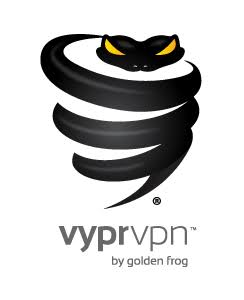Best VPNs for France (2024)

- Always evades internet control in the PRC
- Keeps ahead of the Netflix VPN detection algorithm
- Benchmark tests show excellent speed

- More US city locations than its rivals
- Includes malware protection
- No-logs policy

- Golden Frog, the business behind VyprVPN also runs a gaming platform
- VyprVPN pioneered obfuscation techniques and they have always worked well
- VyprVPN’s no logs policy is confirmed by an independent audit
For more than 200 years, the motto of the French Republic has been “liberté, égalité, fraternité.” Today, however, the nation is moving further away from its ideals with each new law. It’s no wonder the French are increasingly turning to VPNs for protection.
Do you really need a VPN in France?
Yes, and there’s a laundry list of reasons why.
For starters, you can’t enjoy the US or UK TV programming to its full extent without one. And you’ll always get a trimmed-down version of everything from Netflix, HBO Now, Hulu, and BBC iPlayer, to Sky TV, Steam, Apple iTunes, and Google Play stores. Some restrictions are downright ridiculous, and you’ll probably have problems downloading an iPhone app from a French IP. Even YouTube gets filtered.
If you’re French and traveling abroad, you’re going to face the same types of problems – you won’t be able to access your favorite Canal+, Eurosport, or Play TV. So, a VPN seems like the easiest and the cheapest solution to your entertainment woes.
Oh yes, and let’s not forget France is a member of the 14 Eyes. Data retention and surveillance laws in France (LPM, LOPPSI) mandate for the ISPs to keep your data for one year. State agencies can access that data with little to no oversight. The French Constitutional Council obliges ISPs to monitor the online behavior of users they find suspicious and forward that information to intelligence agencies. Without user consent, ISPs and law enforcement install so-called black boxes like stealth cameras and keyloggers to analyze users’ metadata for suspicious behavior. French laws allow mass surveillance of electronic communications sent to and received from abroad, too.
The data collection and surveillance legislation in France is also conveniently vague. It widens the number of entities that have warrantless access to your data, and the definition of who can be identified as a threat turns the population of an entire country into suspects. The very existence of TES, a biometric database on 60 million French citizens, speaks volumes of the active surveillance that takes place in the country.
The French Intelligence Act and the emergency powers grant authorities sweeping powers to conduct searches of electronic devices without warrants. The UN committee for human rights has even come out and said the French laws grant the state “overly broad powers for intrusive surveillance.”
France does not tolerate illegal torrenting either. The anti-piracy law HADOPI grants the overseeing agency powers to bypass the legal procedure and carry out “private policing of copyright.” So, you can end up with a hefty fine if your ISP catches you torrenting copyrighted material.
France is no stranger to content filtering and censorship. Emergency legislation and Anti-Hatred laws enable officials to remove content and block websites as they see fit, without judicial process.
And, much like the United States and Australia, France is highly targeted by cybercriminals, with the number of recorded attacks has grown by 51% last year. So, you can never be safe when browsing from home or public Wi-Fi without a VPN in France.
Ranking criteria
I picked my top seven VPNs for France based on wide server coverage, fast speeds, watertight security and zero-logs policies, reliable performance when streaming geo-restricted content and unlimited P2P file-sharing, user-friendly cross-platform clients, the best price-per-value ratio, and excellent business ethics.
1. ExpressVPN

- Always evades internet control in the PRC
- Keeps ahead of the Netflix VPN detection algorithm
- Benchmark tests show excellent speed
ExpressVPN is a great choice if you need a VPN for streaming Netflix and/or unlimited P2P torrenting. It has no problem streaming HD videos and shows no lag when it comes to online gaming. They have a huge network of servers optimized for speed and stability, which is why it’s one of my top picks.
Pros
- Installs on routers
- Simultaneous connection allowance of five devices
- Split tunneling
- Large choice of server location
- Very strong connection encryption
Cons
- One of the most expensive VPN services
- China blocks its main website (but not functionality)
- Live chat support is not always responsive
ExpressVPN is watertight on privacy, too. They’re headquartered in the British Virgin Islands, so count on a moderate pro-privacy legal climate. They don’t log traffic or DNS queries, use OpenVPN, 256-bit AES-CBC encryption, SmartDNS, and perfect forward secrecy.
On the downside, you can only use it on three devices, but the apps come with a bundle of cool features like DNS leak protection, a kill switch, and auto-connect. Both the desktop and mobile apps are sleek and easy to use.
ExpressVPN has a 30-day money-back policy on all plans, and a yearly subscription is a bargain at $99.95 per year. The bi-annual plan costs $60, but the $13 monthly plan is a bit expensive for what you get.
2. NordVPN

- More US city locations than its rivals
- Includes malware protection
- No-logs policy
NordVPN is a no-nonsense contender to every provider on the list, with an impressive network of 830+ self-managed servers and a true zero-logs policy backed by OpenVPN over TCP and AES 256-bit encryption.
Pros
- A large number of servers
- Threat protection with a proprietary security system called CyberSec
- Split tunneling
- Obfuscated servers for China and other locations where VPNs are discouraged
- No-logs policy
- Automatic wi-fi protection
Cons
- Parts of the server network have poor download speeds
- No servers in India
- Onion over VPN can be slow
They have servers optimized for HD video streaming, Tor over VPN, double VPN, and anti-DDoS. Top it off with a kill switch and DNS leak protection, and you get one of the most robust VPNs in terms of encryption and security. The increased security in double encryption connections comes at the cost of reduced speeds, though.
NordVPN is a very capable VPN for streaming HD video lag-free, unblocking geo-restricted websites and online gaming. They also allow unlimited P2P file-sharing and enjoy fairly lax anti-piracy laws because they’re based in Panama. It also means no 14 Eyes, Big Brother, or data retention laws.
Their cross-platform client is hands down one of the most intuitive suites, and you can run it on up to six devices.
Their $12 monthly subscription might not be cheap, but the bi-annual plan is $42, and the annual will set you back $70, which is the best price per value proposition backed by the 30-day money-back policy.
3. VyprVPN

- Golden Frog, the business behind VyprVPN also runs a gaming platform
- VyprVPN pioneered obfuscation techniques and they have always worked well
- VyprVPN’s no logs policy is confirmed by an independent audit
VyprVPN has a reputation of excellence in the VPN market, with more than 700 self-managed servers that grant you superb speeds for everything – online gaming, HD streaming, and unlimited P2P file-sharing from France. VyprVPN unblocks streaming services like BBC iPlayer and Netflix and comes in a convenient, cross-platform client that’s easy to sort out even for the technically challenged.
Pros
- Dodges detection, even in China
- Simultaneous connection allowance of ten devices
- Split tunneling
- Large choice of VPN server locations
- Can unblock a lot of premium streaming services
Cons
- One of the most expensive VPN services
- No VyprVPN app for Linux or Chrome OS
- No browser extensions
- Can’t get into Disney+, ABC, NBC, or Channel 4
The company is based in Switzerland, which is one of the best places on the planet for its strong data protection laws. They keep no logs and use OpenVPN, 256-bit AES encryption, VyprDNS, and proprietary Chameleon encryption. Even though they spoke out against illegal torrenting, VyprVPN does not cap your bandwidth or block P2P torrenting.
There’s no refund policy here, but they offer a three-day free trial so that you get a better idea of the performance and speeds. They have two pricing plans that can be billed yearly or monthly. Basic allows up to three connections and costs $60/year when billed annually, and $120/year when billed monthly. Premium allows up to five connections and clocks in at $80/year when billed annually or $155.4/year when billed monthly. Premium also comes with a laundry list of additional features like a kill switch, DPI protection, Chameleon protocol, and VyprVPN Cloud.
4. IPVanish

- No limit on the number of devices you can connect at the same time
- SOCKS5 proxy, which its main rivals don’t have
- More VPN servers in more US cities to dodge blackouts
IPVanish is a top-notch VPN for France, with hundreds of self-managed servers in 60+ countries so you can enjoy great coverage of Europe and the United States, blazing speeds, and excellent performance. Highlights include unlimited torrenting, HD video streaming, online gaming, and unfettered access to the US and UK libraries of the streaming websites like BBC iPlayer, Hulu, and Netflix.
Pros
- Good at dodging blackouts on US sports streaming sites
- A large IP address pool
- Split tunneling available
- Strong IP leak protection
- IPVanish support is available around the clock via chat and email
Cons
- No app for Linux
- No browser extensions
- 30-day money-back guarantee only for the annual plan
- Prices increase after the first subscription period
- No malware or antivirus service
IPVanish keeps no logs and uses 256-bit AES encryption and SOCKS5 web proxy. Their cross-platform client is user-friendly and you can connect up to five devices simultaneously. Since they own their servers, no third parties can mingle with your data. There’s just one bug about them – they’re US-based, so data retention laws apply. Since they keep no logs in the first place, however, they have nothing to turn in to authorities.
Their subscriptions are fairly affordable and come with a seven-day money-back guarantee. The monthly plan comes in at $10 per month, and the annual at $6.49 per month.
5. PureVPN

- Excellent client with pre-configured modes for streaming, P2P, privacy
- Kill switch
- Support for wide range of protocols, including OpenVPN
PureVPN is based in Hong Kong, which has no mandatory data retention laws. They have excellent server coverage of Europe and the US, with a huge network of 750+ self-managed servers. You can reliably spoof into France and into the US or UK, find servers located outside the 14 Eyes countries, and enjoy decent speeds. They also keep no session logs and offer 256-bit AES encryption, DNS leak protection, and a kill switch, but they keep a timestamp and a total amount of bandwidth for “troubleshooting purposes.”
Pros
- Excellent client with pre-configured modes for streaming, P2P, privacy
- Kill switch
- Support for wide range of protocols, including OpenVPN
- Great for newbies and experienced users alike
- Wide server coverage
- Good speeds
- 24/7 support
- Accepts Bitcoin
Cons
- No free trial
- 7-day money-back guarantee comes with restrictions
- No Netflix
- No BBC iPlayer
- Client is not as “one-click” as advertised, and troubleshooting requires technical skills
PureVPN has servers optimized for unlimited P2P torrenting while unblocking geo-restricted content is uneven – you can experience issues during peak hours. Their strongest point is the extensive support for all sorts of platforms (50+) from routers to smart TVs, ROKU, mobile, and desktop devices. I personally love the advanced features like the stealth browsing mode, secure FTP access, split tunneling, and online banking security.
One subscription allows up to five simultaneous connections, and the cross-platform client is a breeze to use. With a three-day free trial and a 7-day money-back guarantee, PureVPN is one of the most affordable contenders on the list. Their two-year plan comes in at $3 per month, while the bi-annual plan is justly positioned at $9 per month and the monthly at $12 per month.
6. Hide.me

- Lifetime free plan available
- Port forwarding available
- Certified zero logs
Hide.me offers impressive performance, speeds, and excellent zero-logs privacy protection. They’re based in Malaysia, and have 115+ servers in 23 countries, most of them in Europe, Canada, Mexico, the US, and Brazil. So you won’t have trouble spoofing into and from France. They don’t share data with third parties, and their location makes them fairly immune to the 14 Eyes Big Brother and anti-piracy laws.
Pros
- Lifetime free plan available
- Port forwarding available
- Certified zero logs
- Independent from any government interference
- Supports modern security protocols
- Outstanding speeds
- Applications for mobile devices available
- 24/7 customer support
Cons
- Complexity in setting up simultaneous connections
- Number of servers may not sufficiently handle heavy traffic
The sleek, simple, cross-platform client is easy to sort out, and you can have it on desktop and mobile. Hide.me performs reliably when unblocking streaming services, allows P2P, and does not leak DNS.
You might think Hide.me has a complex payment structure, but it’s quite simple really. They have three plans with a 14-day money-back guarantee. One is a Free-Forever plan with extremely limited server coverage in Netherlands, Canada, and Singapore. It grants you limited protocol support, 2 GB data transfer, and “best effort” bandwidth. You can only run it on one device, and naturally, speeds aren’t all that stellar.
The second is the Plus plan which covers 30+ server locations, unlimited bandwidth, and full protocol support. Here, too, you encounter unexpected restrictions – only one connection and 75 GB data transfer allowed. You can choose between three configurations – $9.95 if billed monthly, $40 if billed bi-annually, or $60 if billed annually.
The Premium plan finally drops the restrictions. It adds unlimited data transfer, five simultaneous connections, port forwarding, SOCKS proxy, a Kill Switch, and fixed IP on top of what you can have in the Plus plan. Here, too, you can choose between $20 if billed monthly, $80 if billed bi-annually, or $120 if billed annually.